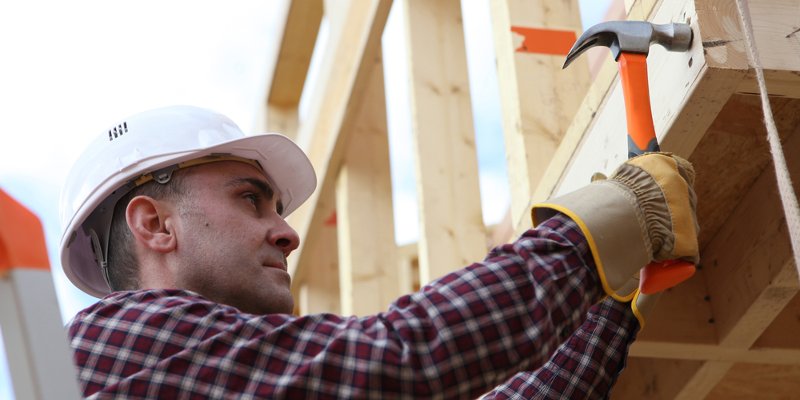The committee recommended for the ministry to report annually the total amount allocated to MMC developments

The Housing, Communities and Local Government Committee has urged the government to use modern methods of construction (MMC) to meet its target of building 300,000 new homes a year by mid-2020s.
The committee recommended for the ministry to report annually the total amount allocated to MMC developments across all its different funding streams, while it should implement a coordinated strategy across all relevant government departments to increase MMC homebuilding.
Clive Betts MP, chair of the committee, said: “If the government is to have any chance of meeting its target of 300,000 new homes a year it cannot simply rely on traditional methods of construction.
“They must make a serious effort to support the use of new and emerging technologies that have the potential to have a transformative impact on the speed, cost and quality of home building. This is not simply about shifting production away from the building site and into factories.
“It is about seizing opportunities that modern technologies allow, whether it be precision manufacturing, use of new materials or digital working.
“The housing system is in urgent need of a major boost and if the government is to have any chance of meeting its ambitious target it must grasp every opportunity new technologies allow. But they must act fast and act now.”
The committee said the government should develop a digital database that records the design, processes and materials used in the construction of buildings.
It also said homebuilders should use more digital technology in their processes and not simply move construction off-site, and that local authorities need to start building homes in far greater numbers than they have done in recent years.
The committee argued the government should help MMC homebuilders to access land that it controls so they can increase their overall delivery of homes and shore-up demand for the supply chain.
Charlie Blagbrough, policy manager at the Building Societies Association (BSA), who gave evidence to the committee in April, added:"The BSA welcomes the Committee's recognition that modern methods of construction (MMC) are vital to delivering the target of 300,000 homes a year.
“While the UK remains a nation of brick lovers, there is growing acceptance of different types of materials and innovative building methods - something building societies are familiar with through their lending on self and custom-build.
"As with any underwriting decision, the key to widespread acceptance and utilisation of MMC lies in reducing risk.
“We are particularly pleased to see three of the committees recommendations: the introduction of digital logbooks for properties; data being gathered on durability and the standardisation of warranties.
“We called for these as absolute musts, all critical to risk reduction and the promotion of more MMC built homes.We will continue to work with government to make these recommendations a reality."
The committee proposed for an "MMC Scheme" that will set out a single set of standards for warranty providers against which to make decisions.
Currently, warranty providers set their own standards against which to assess homes. The MMC Scheme which is being developed by the MCHLG Joint Industry Working Group will provide financial service providers with more certainty about the quality of MMC homes.
The committee said the government must ensure skills programmes, apprenticeship schemes and the new T Levels give learners the skills they need for both traditional techniques and MMC and encourages more young people into the sector.
Furthermore the committee said government should urgently set out a clear plan for the review of the building regulations, including the whole suite of approved documents, and consider how they relate to MMC buildings.
In addition, the committee said the building regulations should set more stringent energy performance targets for homes to take into account achievable levels of energy efficiency.
If current schemes are insufficient to provide the finance needed to increase MMC output, new schemes aimed at MMC developments should be considered.



